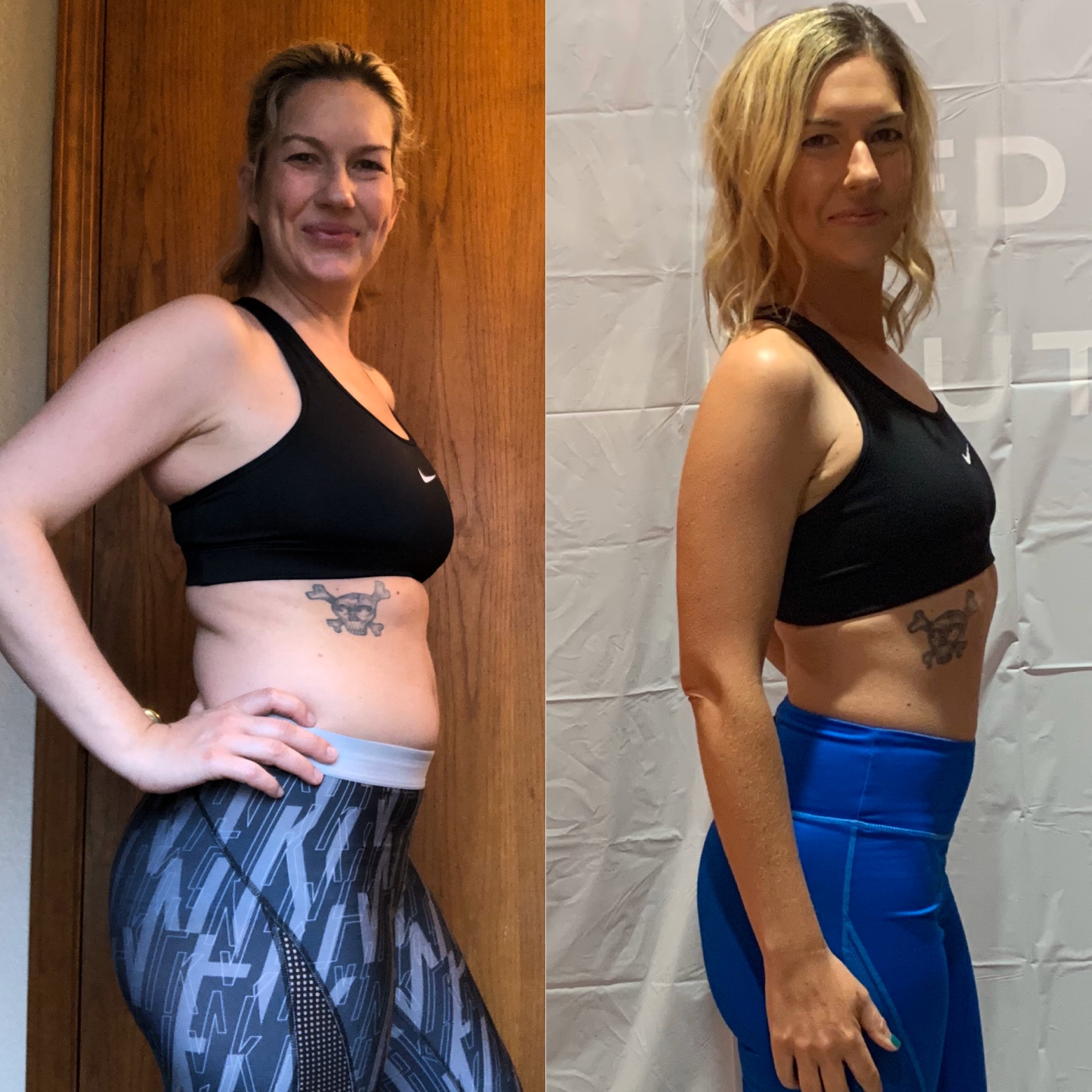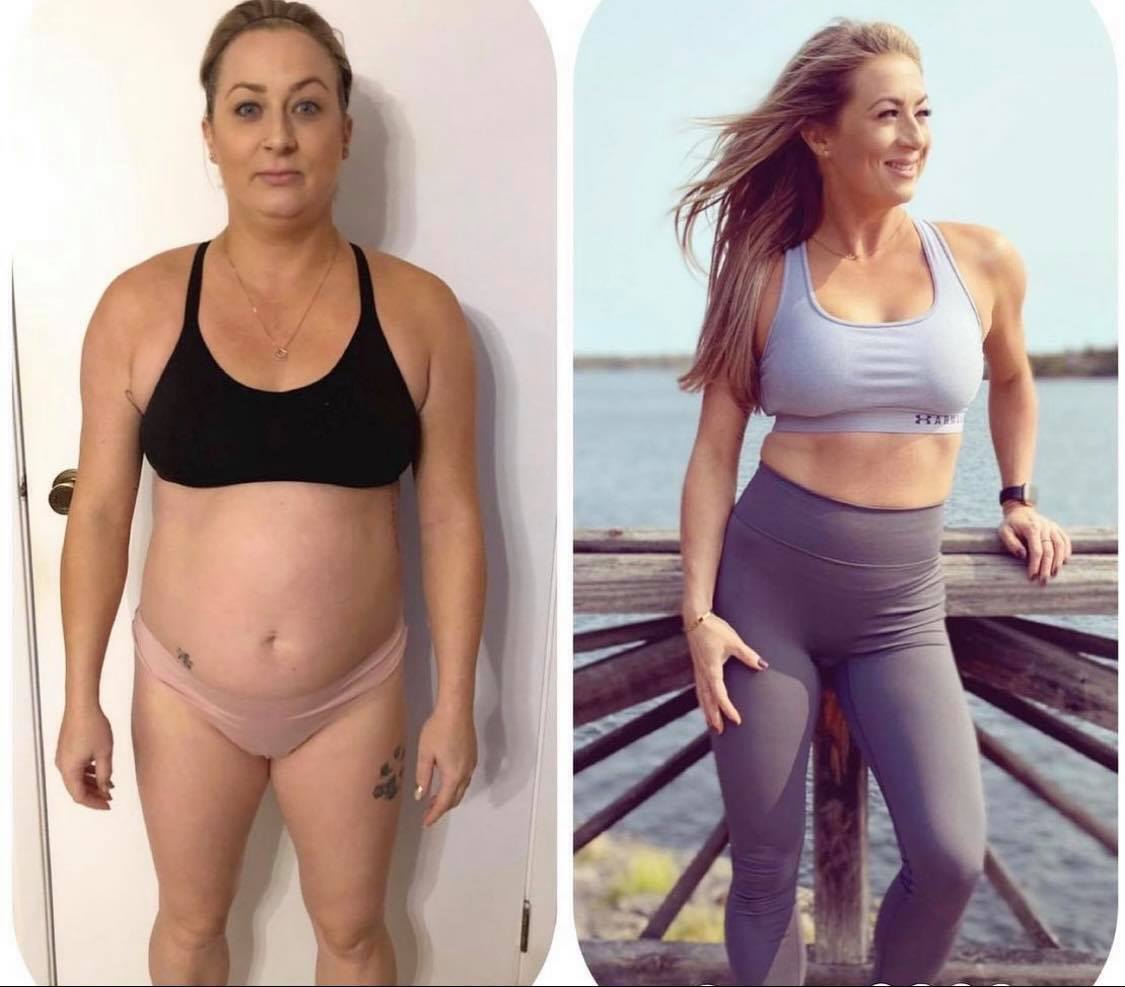Does alcohol affect weight loss? If you’re struggling to lose weight, then unfortunately the booze might be getting in the way.
If you’ve been finding it a little tricky to shift those extra few pounds, then you may need to ask yourself if alcohol is the thing holding you back from achieving your goals. Let’s take a look at some research around the impact of drinking on weight loss, and answer some FAQs.
Drinking and weight loss: fast facts
- Calorie levels vary depending on the alcoholic drink, but pure alcohol comes in at around 7 calories per gram, which is about the same as a gram of fat.
- The calories in booze are termed ‘empty calories’, meaning they provide no nutritional value.
- Your body prioritises metabolising alcohol over vital nutrients, so it can filter out the toxin as quickly as possible. That means you get less nutritional value from any healthy foods you eat while alcohol is in your system.
Drinking, weight and health
There are a number of reasons why reducing your alcohol intake and monitoring your weight can positively influence your health. Both excessive drinking and weight gain are risk factors in a number of different illnesses, like high blood pressure, various cancers, heart disease and more. We’re not trying to scare you! But it’s important to understand the impact drinking has on our bodies, so we can take action where required.
How does weight loss work?
In simple terms, the weight loss process depends on the number of calories consumed versus calories burned. In order to lose weight, you need to be in a caloric deficit for a period of time, meaning you need to be burning more than you’re consuming. That’s why people trying to lose weight tend to either adopt new diet plans or increase their exercise routines to shift the balance.
Why does drinking make weight loss harder?
Having a few alcoholic drinks doesn’t mean you’ll instantly gain weight, but it can make losing a few pounds a bit more difficult for a number of reasons.
Alcohol is deceptively high in calories. It doesn’t fill you up or give you any nutritional value—it just eats up your calorie allowance when you want to be in deficit.
Research has revealed that alcohol makes up as much as 10% of an average adult drinker’s total calorie intake in the UK, and this is even higher at 16% in the USA. Generally, men consume three times as much as women.
So, looking at this from the weight loss perspective, you could be exercising three times a week, eating a relatively balanced and healthy diet, but undoing all your hard work by adding 10-16% onto your calorie intake through drinking. And that’s just the alcohol—we haven’t even touched on the sugary mixers, high carb beers, and calorie-dense cocktail ingredients. It all starts to add up.
Unfortunately, there’s more. Because drinking lowers your inhibitions, you’re more likely to make poor food choices, while drinking and after too—hangover meals don’t tend to be the healthiest… You’re also less likely to want to exercise or be active when hungover, so you’re not burning off all the excess calories.
Not only does alcohol add nothing to your body nutritionally, it can actually have a detrimental impact on the nutrients your body does consume. For example, it gets in the way of vitamins and minerals being absorbed, such as folate which is essential for a healthy body. And since drinking doesn’t fulfil your body’s need for food, you’ll still feel hungry and will most likely eat something else.
Can going alcohol-free help you lose weight?
By taking the excess empty calories from alcohol out of your diet, you’ll probably find it easier to lose weight—as long as you don’t swap in other sugary drinks or unhealthy foods, that is.

“Day 72 I hit my goal weight. In just over two months, I did what I could not fathom over the past 15 years. The physical transformation has been astounding. I have lost over 20 pounds and 4% body fat to date. I believe I will lose another 10 pounds before the year is complete.
As an athlete, I remember that I can improve my effort and continue to achieve great benefits and build a healthy body that can last me to 120 years of age (yeah, that’s also a real goal).” —Meagan
Nathan had started to notice that his weekend antics were infiltrating the rest of his life. Hangovers were holding him back from living the healthy lifestyle he aspired to – so he took the challenge! As a result, he lost 5 stone and began to focus on his fitness.
“I no longer feel like I need alcohol in my life, in fact every area of my life has improved since I stopped drinking.
I am more present with my children, the mental clarity that I have now is off the scale. On the weight and fitness side, I have lost a total of 5 stone, gone from no running to running a 50 mile ultra-marathon and I am on target to complete a total of 1000 miles.”

Amanda also experienced weight-loss going alcohol-free. Simply by removing the added calories she had been drinking, and having more energy to throw herself into workouts, she lost 17 pounds in a month!
“I had gained quite a bit of weight and was at my heaviest in years. I was in such a rut and just not excited about life the way I once was.
Well, I never thought I would be here, but I’m past my 90 days with not one drop of alcohol and continuing on to the BIG 365!
I have been going to the gym, eating healthy and I have lost 17 pounds in the last month. I have even signed up for a 5K cancer run this summer!”

Tips for reducing alcohol intake and boosting weight loss
If you think drinking might be holding you back from reaching your weight loss goals, then you’re going to love these tips!
- Reduce the amount of alcohol you drink as much as possible, sticking within or below government recommended guidelines, and ensuring multiple alcohol-free days each week.
- Avoid sugary mixers, heavy beers or other calorie-dense drinks. Instead, try mixing with soda water or other lower calorie options.
- Explore alcohol-free drinks options—there are so many AF alternatives on the market, and many of them are much lower in calories versus their alcoholic counterparts (plus they won’t make you crave any hangover meals!)
- Join us for an alcohol-free challenge! Changing your relationship with alcohol is the best way to reduce your alcohol intake long term, making it easier to stick to your weight loss goals.
There are so many other benefits to reducing your alcohol intake beyond just weight loss. Think improved sleep, reduced anxiety, increased productivity, better health, saved money and so much more.
What can OYNB do to help?
If you feel as though alcohol may be holding you back from achieving your weight loss goals, we’re here to help. We’ve developed a leading habit change programme to support you in resetting your relationship with alcohol, with a proven step-by-step process that guides you through breaking down old, negative habits, and helps you rebuild new, healthier ones.
Taking a break from alcohol can be the first tile in a domino effect of positive behaviour changes. From rethinking your diet and nutrition to increased energy and motivation for exercise, it all moves you closer to your health and weight loss goals.
Sources:
S Goya Wannamethee, A Gerald Shaper, Alcohol, body weight, and weight gain in middle-aged men, The American Journal of Clinical Nutrition, Volume 77, Issue 5, May 2003, Pages 1312–1317, https://doi.org/10.1093/ajcn/77.5.1312
Shelton NJ, Knott CS. Association between alcohol calorie intake and overweight and obesity in English adults. Am J Public Health. 2014;104(4):629-631. doi:10.2105/AJPH.2013.301643
Rosalind A Breslow, Chiung M Chen, Barry I Graubard, Tova Jacobovits, Ashima K Kant, Diets of drinkers on drinking and nondrinking days: NHANES 2003–2008, The American Journal of Clinical Nutrition, Volume 97, Issue 5, May 2013, Pages 1068–1075, https://doi.org/10.3945/ajcn.112.050161
Rosalind A Breslow, Chiung M Chen, Barry I Graubard, Tova Jacobovits, Ashima K Kant, Diets of drinkers on drinking and nondrinking days: NHANES 2003–2008, The American Journal of Clinical Nutrition, Volume 97, Issue 5, May 2013, Pages 1068–1075, https://doi.org/10.3945/ajcn.112.050161
Traversy G, Chaput JP. Alcohol Consumption and Obesity: An Update. Curr Obes Rep. 2015;4(1):122-130. doi:10.1007/s13679-014-0129-4

An entrepreneur and former senior oil broker, Ruari gave up drinking after excessive consumption almost cost him his marriage, and worse, his life. Going alcohol-free improved his relationships, career and energy levels, leading to him founding OYNB to provide a support network for others.








